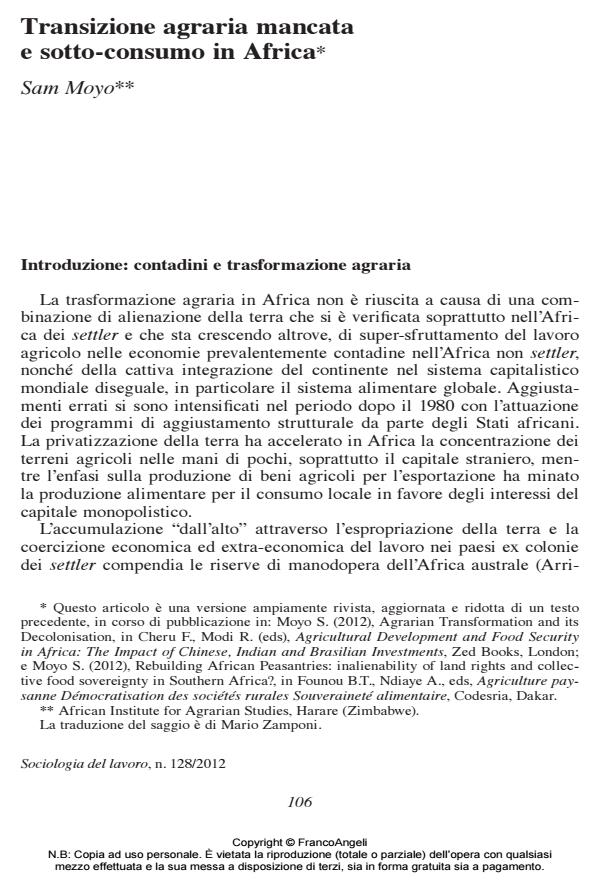Failed Agrarian Transition and Under-consumption in Africa
Journal title SOCIOLOGIA DEL LAVORO
Author/s Sam Moyo
Publishing Year 2012 Issue 2012/128 Language Italian
Pages 16 P. 106-121 File size 347 KB
DOI 10.3280/SL2012-128007
DOI is like a bar code for intellectual property: to have more infomation
click here
Below, you can see the article first page
If you want to buy this article in PDF format, you can do it, following the instructions to buy download credits

FrancoAngeli is member of Publishers International Linking Association, Inc (PILA), a not-for-profit association which run the CrossRef service enabling links to and from online scholarly content.
Agrarian transformation in Africa has failed due to a combination of factors, including land alienation which occurred mostly in settler Africa and is growing elsewhere and the super-exploitation of agrarian labor in the peasant economies of non-settler Africa. In the 1960’s, land alienation was halted, but the malintegration of the continent into the unequal world capitalist system, particularly the global food system, grew under neoliberalism in the 1980’s. Maladjustment has intensified since the recent world financial crisis leading to increased privatization and concentration of agricultural land, including under foreign capital. The persistence of commodity production for exports undermined the production of food for local consumption, while public investments in agricultural technology declined. The alternative of food sovereignty based on autonomous small producers requires significant state intervention and human capital development, to restructure the food system, and to enhance consumer and trade protection. The case of Zimbabwe is outlined in order to discuss a model of agrarian resistance against neo-liberalism.
Keywords: Agrarian transformation, accumulation by dispossession, redistributive land reform, under-consumption, productivity decline, Zimbabwe
Sam Moyo, Transizione agraria mancata e sotto-consumo in Africa in "SOCIOLOGIA DEL LAVORO " 128/2012, pp 106-121, DOI: 10.3280/SL2012-128007